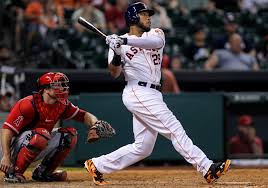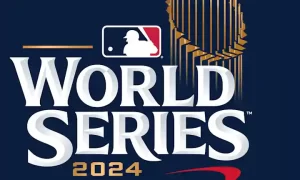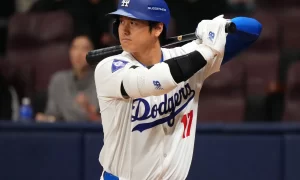In 2014, Houston Astros’ prospect Jon Singleton signed a 5 year, $10 million deal before he had a single MLB at bat. The deal guaranteed Singleton a $10 million pay day no matter how his career shook out and put the Astros in a position to control a guy they believed could be one of baseball’s premiere power hitters for a well below market rate.
Understandably, the deal was controversial. A number players, most notably Bud Norris and Mark Mulder, derided the deal as a steal for the Astros and a major loss for the players. They even went so far as to suggest that Singleton’s agent had coerced the then-22 year old into signing a contract well below his worth just to guarantee himself a commission on the deal:
Just saw contract this #astros prospect signed. Either he doesn't believe in himself to be great or he has a terrible agent who wants the 4%
— Mark Mulder (@markmulder20) June 3, 2014
From Mulder and Norris’ point of view, Singleton was essentially opting out of the collectively bargained arbitration process, a process designed to reward players for their performance early in their careers, and thereby de-legitimizing the system and the union that helped put it into place. Norris alluded to as much publicly when he said that Singleton should have listened to the union and not his agent before signing the deal.
Fast forward a little more than two years to present day. This week, the Astros announced that Singleton would not make the Opening Day roster and would instead be sent down to AAA to work on some things. This makes a great deal of sense when you look at his numbers so far.
In 2014, after signing his big deal, Singleton played in 95 games for Houston and hit just .168, though he belted 13 homers in 310 ABs. He made $1.5 million for those 95 games.
In 2015, Singleton spent most of the season in AAA, batting .254 with 22 bombs for the Fresno Grizzlies. In very limited MLB time in his age 23 season, Jon hit only .191 with a homer in 19 games. He made $2 million, bringing his career earnings up to $3.5 million for 104 games, a .171 average, and -1.0 WAR spread over 2 seasons.
He came in to the spring of 2016 as the odds on favorite to win the starting first base job but once again posted a sub-.200 AVG and lead the team in strikeouts during Spring Training, before being sent back to Fresno this week.
Let’s stop here and take a quick snapshot. At this point, Singleton is still considered one of the most talented young players in the Astros’ system but he’s repeating AAA after failing at the major league level for a 3rd time. He’s now 24 years old so he’s not exactly super-young anymore. There isn’t any guarantee that he’ll even get another shot at the MLB, and if he does it’s not certain that it will be with Houston.
While teams might be interested in a talented first basemen with the potential to be a serious power threat, the Astros would likely have trouble convincing a trading partner to take on the remaining $6.5 million on Jon’s deal, especially considering that under normal circumstances Singleton would be under control for 5 more seasons, the first couple of which at the major league minimum.
At this point, the $10 million deal looks pretty good for Singleton, who, worst case, will be a very rich bust. It looks plenty bad for Houston, who may have just flushed a lot of money for a player they would have had anyway. If the contract essentially amounted to an insurance policy for Singleton’s career, it’s looking like a pretty good one.
So that begs the question: Is that really such a bad thing? If the goal of the MLB Players Association is to maximize the amount of money its members make, this seems like a pretty good outcome for them. Say Singleton never makes it back to the majors, or does and continues to struggle for another few seasons before washing out. In that case, he’s pocketed $10 mil instead of the $1 mil or maybe $2 mil he would have otherwise made.
Of course, if the MLBPA is only concerned with maximizing its leverage and places the best interests of the union as a whole above those of any individual player, a very understandable viewpoint and in fact their most likely position, then this Singleton contract is again not great. If the union had more strongly discouraged the signing of this deal, it would have been for the continued strength of the current arbitration system, a system that has allowed players to earn tens of millions of dollars without ever hitting the open market.
The MLBPA most heavily represents the interests of established big leaguers. Minor leaguers do not benefit from the protections that union members get. Since their most prominent and powerful members are mostly veterans, the MLBPA tends to skew towards protecting the rights of established players.
The fact is though, the MLBPA should learn from Singleton’s case. In some circumstances it might greatly benefit the player, and therefore his union, to reap the financial rewards that come with prospect hype. Singleton isn’t the first guy to sign a moderately sized deal early and not live up to it. Bobby Crosby signed a $12.75 million deal in 2005 after his 2004 rookie of the year campaign. That deal probably looked even worse than Singleton’s at the time given Crosby’s proven big league success, but in retrospect was a very savvy move by the player.
Evan Longoria signed a $17.5 million, 6 year deal after playing a little more than week in the MLB in 2008, but that deal was heavily incentive laden. Moreover, the fact that the third baseman signed a subsequent $100 million extension that was again well below market value is probably a bigger concern for the MLBPA.
The point, I suppose, is that this stuff is complicated. Norris and Mulder were wrong when they condemned Singleton’s deal right out of the gate, but Singleton also gave up a lot of potential money in order to secure a solid financial future. The MLBPA would be unwise to oppose all contracts like this on principle because in some circumstances they clearly benefit the player.
The real question is, if the Cubs offered Kris Bryant a 5 year, $25 million deal today, would he sign it? Should he?
-Max Frankel

















